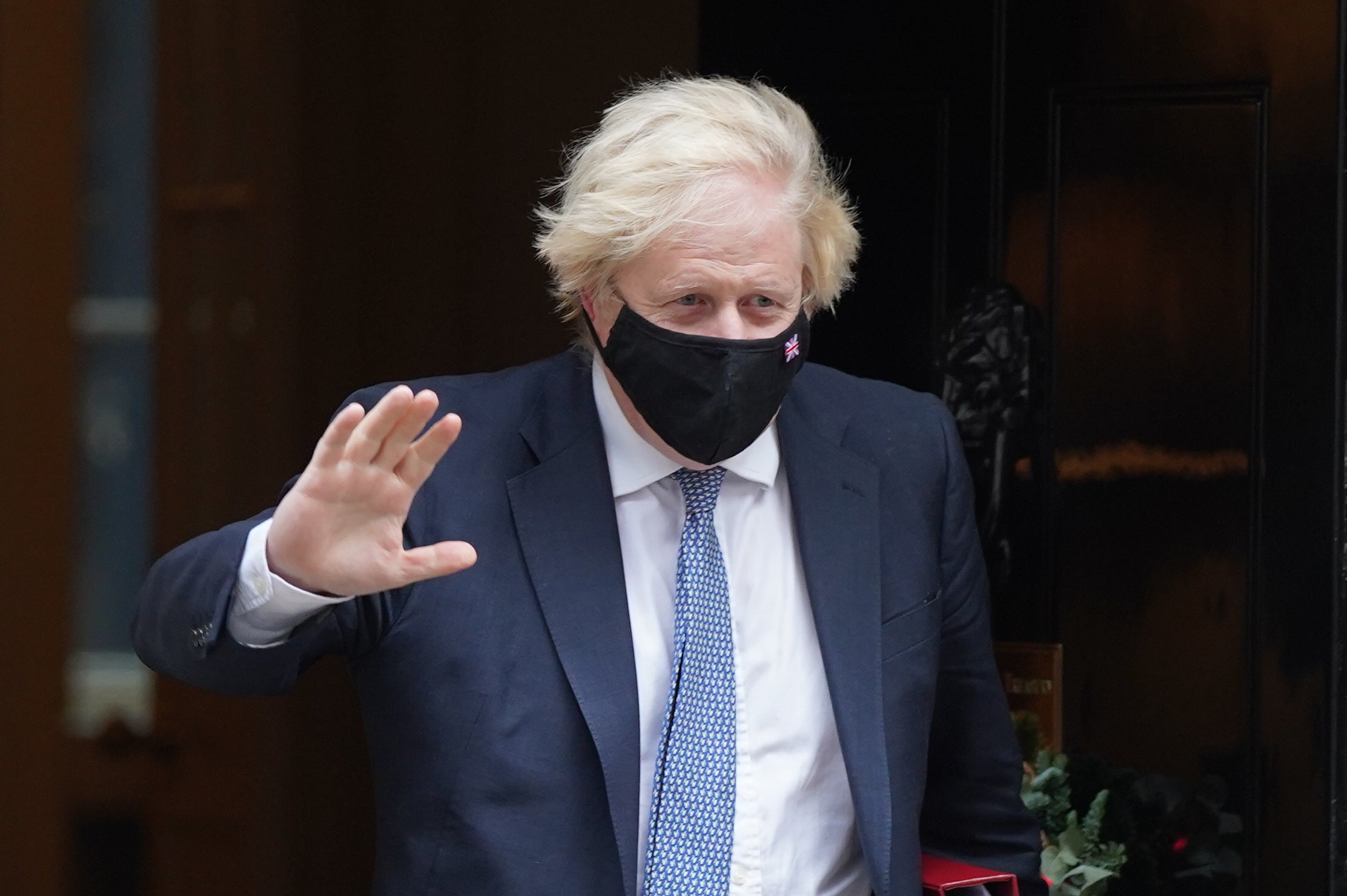‘Nothing untoward’ about Boris Johnson discussing policy with Tory donor who paid for his flat refurb, minister says
Labour has called for a new investigation into the revelations

Your support helps us to tell the story
From reproductive rights to climate change to Big Tech, The Independent is on the ground when the story is developing. Whether it's investigating the financials of Elon Musk's pro-Trump PAC or producing our latest documentary, 'The A Word', which shines a light on the American women fighting for reproductive rights, we know how important it is to parse out the facts from the messaging.
At such a critical moment in US history, we need reporters on the ground. Your donation allows us to keep sending journalists to speak to both sides of the story.
The Independent is trusted by Americans across the entire political spectrum. And unlike many other quality news outlets, we choose not to lock Americans out of our reporting and analysis with paywalls. We believe quality journalism should be available to everyone, paid for by those who can afford it.
Your support makes all the difference.There is “nothing untoward” about Boris Johnson discussing policy with a Tory donor who paid for his flat refurb, a government minister has said.
Labour has called for a new investigation into the prime minister after text messages emerged between him and Lord Brownlow.
The conversations show the PM called parts of his Downing Street residence a “tip” and promised to look into the donor’s proposal for a “great exhibition” while negotiating payments for the refurb.
Mr Johnson apologised on Thursday for not giving the texts to his independent ethics adviser Christopher Geidt during a previous probe.
Labour’s deputy leader Angela Rayner wrote to Lord Geidt on Friday raising “serious questions and concerns” about the Brownlow texts and urging him to revise his earlier report – written before he was informed of their existence.
She said the messages threw into doubt the adviser’s previous assessment that there was “no reasonably perceived conflict” in the PM’s reliance on the Tory donor to assist with funding his flat renovations.
“It is irrelevant in this regard whether Lord Brownlow’s motives are altruistic,” wrote Ms Rayner. “The issue is that a reasonable person could surely perceive that his financial relationship with the prime minister has provided him with privileged access to government, and that relationship was undeclared at the time.”
The Labour deputy leader also pointed out that the PM’s correspondence with Mr Brownlow during the height of the Covid pandemic appeared to contradict Lord Geidt’s earlier finding that it was not reasonable to expect him, at a time of emergency, to show the normal level of curiosity about the funding of the work.
“You will know that in November 2020 the country was gripped by a second national lockdown and anxieties about the Christmas period were high,” she wrote. “Yet in this period the prime minister still managed to find time to message Lord Brownlow about his hugely expensive flat refurbishment.”
In a media appearance on Friday morning business minister Paul Scully was asked whether the conversation amounted to corruption.
“Ministers get proposals all the time and what rightly happened was that this got pushed on to the Culture, Media and Sport Department (DCMS) where it sits,” Mr Scully told Times Radio.
“Lord Brownlow made his own approaches and it wouldn’t have just gone to the prime minister, but the important thing is it’s not gone ahead … so there’s nothing untoward that’s happening out of, you know, a few lines in a WhatsApp.”
Labour meanwhile said “cosy text messages” between Mr Johnson and Lord Brownlow raised questions about “cash for access”.
The party has said Commons standards commissioner Kathryn Stone should investigate.
Steve Reed, the shadow justice secretary, told BBC Radio 4’s Today programme: “They matter immensely because Lord Brownlow appears to have access to the prime minister because he was paying for the flat renovations.
“If that is the case, that is corruption. And what we’re seeing here is a case of potential cash for access where Lord Brownlow was given access to ministers to try and influence them over decisions of spending taxpayers’ money – that is why this matters so immensely.
“Those very cosy text messages show there was a quid pro quo in operation between the prime minister and Lord Brownlow, and we need to get to the absolute bottom of this.”
Asked whether it is still a problem as the proposed great exhibition was not given the go-ahead, Mr Reed replied: “The issue is not whether it happened, it is whether rich people can pay to get access to government ministers to try and influence them over how they decide to spend taxpayers’ money.”
Later, No 10 attempted to insist the referral of Lord Brownlow’s suggestion of a great exhibition to the culture department was “normal practice” and “quite usual”.
“It’s routine that when proposals are put to departments that departments take them forward,” the prime minister’s spokesperson said, emphasising the great exhibition proposal “wasn’t taken forward”.
Asked whether Boris Johnson had a role in setting up the meeting, the spokesperson said it “would have been referred to DCMS through the usual official channels”.
The spokesperson added the Tory peer’s suggestion was “dealt with in the same way” as a member of the public’s would have been “in that a department will look at it and take a view on it”.
Join our commenting forum
Join thought-provoking conversations, follow other Independent readers and see their replies
Comments